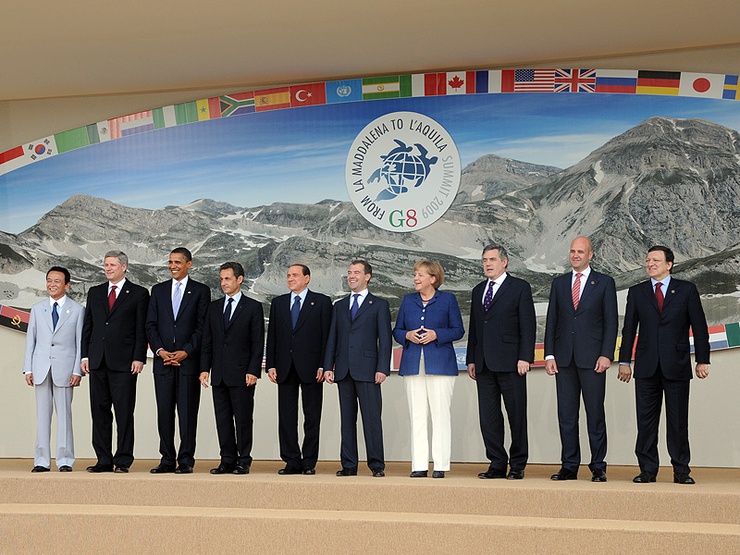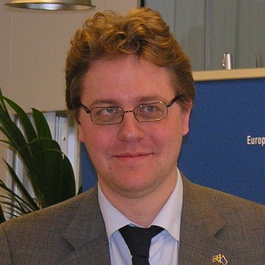
Pierre Schellekens: ‘EU is partnership of member states, not rule of the strongest'
Published on
At 2 metres 09, the 37-year-old cuts an imposing figure. Politically active whilst a student in Gothenburg in the early nineties, he was appointed head of the Swedish EU delegation in February. At home in his apartment in the leafy, quiet area around Stockolm's Odengatan, he talks Sweden’s presidency of the EU, which runs from July to December
Sweden last held the EU presidency in 2001, ending before the 9/11 attacks on New York. In what ways have Sweden and Europe changed in the intervening years?
EU co-operation on justice and home affairs has strengthened significantly since 2001. The Lisbon treaty, should it enter into force, will signal a decisive step towards the ‘communautarisation’ of such matters. But I don't think the 9/11 attacks, tragic though they were, marked a watershed in EU history.
''The 9/11 attacks, didn't mark a watershed in EU history'
The EU has moved on a broad range of areas: we have taken international leadership on climate change, strengthened our common foreign and security policy, further deepened economic integration and established the groundwork for a common energy policy. Undoubtedly, some of these are indirectly linked to the fight against international terrorism. But they primarily spring from the knowledge that closer EU co-operation would benefit Europe politically and economically.
Sweden often comes up as a good example of an advanced economy working in good balance with the environment. How can Sweden offer a lead to Europe on environmental questions during its presidency, now that the environment is a major rather than minor aspect of EU and international policy-making?
Environment policy has risen to the top of the EU agenda. The climate and energy package adopted in December [2008] set the tone for what the Copenhagen conference needs to achieve this December: emission reductions that set us on the path to a low-carbon economy. Sweden is now taking over the presidency and will, together with the commission, steer the EU's position in international climate negotiations. In addition, while EU climate policy is only truly efficient with common EU-wide legislation, there are concrete cases where a member state can set an example by applying practical solutions. A case in point is Sweden's system of district heating; it holds some promises for other member states, so makes progress in housing insulation and the work that has been done on passive houses.
Sweden is a small country. Why should its European partners be concerned to follow its leadership?
The EU is a partnership of member states, not the rule of the strongest. Time and time again, the history of European integration teaches us that when a member state or an institution has a constructive idea, is able to build alliances around it and has a clear strategy, it can set the agenda and take far-reaching initiatives.

Smaller member states have been in a better position to demonstrate the potential of common EU institutions. To mention a concrete example, Sweden contributed to raising awareness about health hazards linked to dangerous chemicals. Together with a group of member states, it played an important role in calling for new legislation which led to the Reach [Registration, Evaluation, Authorisation and restriction of CHemicals] regulation. This has revolutionised the manner by which we evaluate and test chemicals in Europe. There are many areas where this kind of simple and effective common application of best practice can be repeated.
Sweden has much to offer by way of leadership in Europe on central policy questions. What does the EU, and the processes of political and economic integration at its heart, have to offer Sweden?
The EU is a political structure to solve common problems, with an impressive track-record in doing so. The priorities of the Swedish presidency – for example those of climate change, the financial crisis, immigration policy, the Baltic Sea - can only be addressed in a meaningful way at EU level. So for Sweden as for other member states, we will never be able to make progress on issues that stand at the heart of our citizens' concerns without efficient EU co-operation. There are important challenges facing the Swedish presidency, not the least on institutional issues. The Swedish government is well prepared and it is ready, through a successful presidency, to reaffirm its support for a stronger EU.
Pierre Schellekens at glance
 Raised in Antwerp, Belgium and Gothenburg, Sweden
Raised in Antwerp, Belgium and Gothenburg, Sweden
Studied social sciences at Gothenburg University, masters at the College of Europe, Bruges
Joined EU commission in 1996
Environmental background; worked in maritime affairs and as deputy head of cabinet of Stavros Dimas (EU environment commissioner, 2004-2008), and Margot Wallstrom (EU commission vice-president), who is thought to have sponsored his current post in the presidency
Married with two children
Speaks four languages



